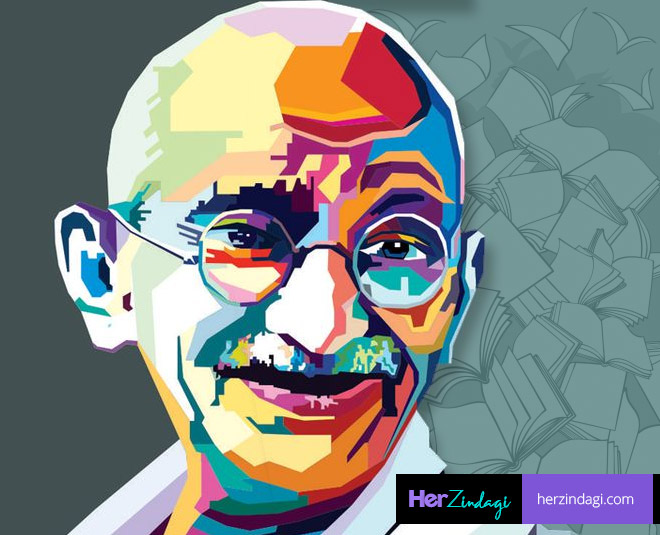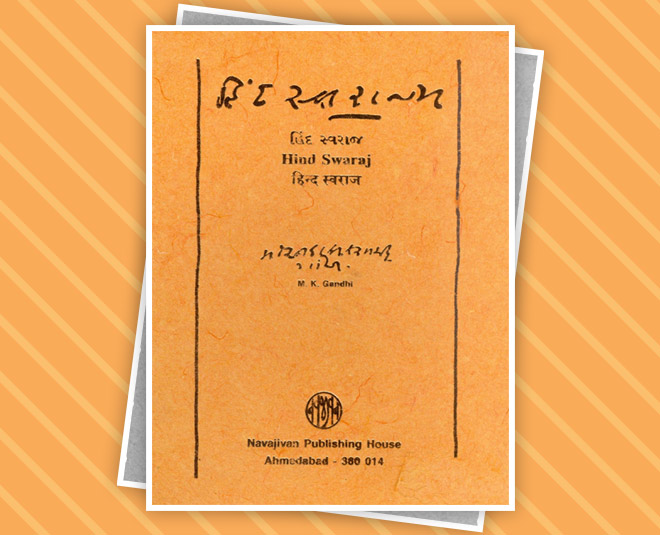
Every year not just us Indians, but many across the globe remember Mahatama Gandhi, the Father Of The Nation' of India, on January 30, the day when he was assassinated by Nathuram Godse, a Hindu fanatic in 1948. This year being his 72nd death anniversary, we give a tribute to him with a list of few books which were either penned by the 'Father of The Nation' himself or by some authors who researched on him and his ideology. Read them and enhance your knowledge or clear your misunderstandings on him and his work. Maybe there is something you did not know about him or misread elsewhere?
Just another information: In 2007, the United Nations General Assembly voted to establish October 2 as the International Day of Non-Violence.

Image courtesy: amazon.com
Gandhi's autobiography guides you as to what is right and wrong. The original was in Gujarati and was later translated into English and other Indian languages. The book is in five parts, beginning with his birth until the year 1921. In the last chapter, he wrote, 'My life from this point onward has been so public that there is hardly anything about it that people do not know...'
This book is a compilation of passages from writings and speeches of Gandhi which gives us an idea of the dream Gandhi had of a completely free and independent India. An amazing source of inspiration, this book imparts profound wisdom through reflection on dreams. This book was originally penned in his native language, Gujarati, while travelling from London to South Africa on board SS Kildonan Castle between November 13 and November 22, 1909.
Here, Gandhi gives a diagnosis of the problems of humanity in modern times, the causes, and his remedy. Did you know that this Gujarati edition was banned by the British on its publication in India. Gandhi then translated it into English. The English edition was not banned by the British, who concluded that the book would have little impact on the English-speaking Indians' subservience to the British and British ideas. It has also been translated to French.
This read contains Gandhi’s views on the decentralisation of economic and political power through the organisation of Village Panchayats, which was to diffuse widely among ordinary people a capacity of collective activity.
Read More: Women Superheroes Are Out To Save The World, We Should Too

Image courtesy: bleakhousebooks.com
Here we ould just like to quote Gandhi, who wrote in the beginning of the book: 'I would like to say to the diligent reader of my writings and to others who are interested in them that I am not at all concerned with appearing to be consistent. In my search after Truth I have discarded many ideas and learnt many new things. Old as I am in age, I have no feeling that I have ceased to grow inwardly or that my growth will stop at the dissolution of the flesh. What I am concerned, with is my readiness to obey the call of Truth, my God, from moment to moment, and, therefore, when anybody finds any inconsistency between any two writings of mine, if he has still faith in my sanity, lie would do well to choose the later of the two on the same subject'. Need we say more?
Constructive Program, a term coined by the man himself, is a method to promote self-sufficiency in the community. He believed that this could be achieved by building systems and processes to carry out a struggle. This book proves to be useful in understanding the creation of successful institutions that are not disruptive.
Also watch this video
Herzindagi video
Our aim is to provide accurate, safe and expert verified information through our articles and social media handles. The remedies, advice and tips mentioned here are for general information only. Please consult your expert before trying any kind of health, beauty, life hacks or astrology related tips. For any feedback or complaint, contact us at [email protected].